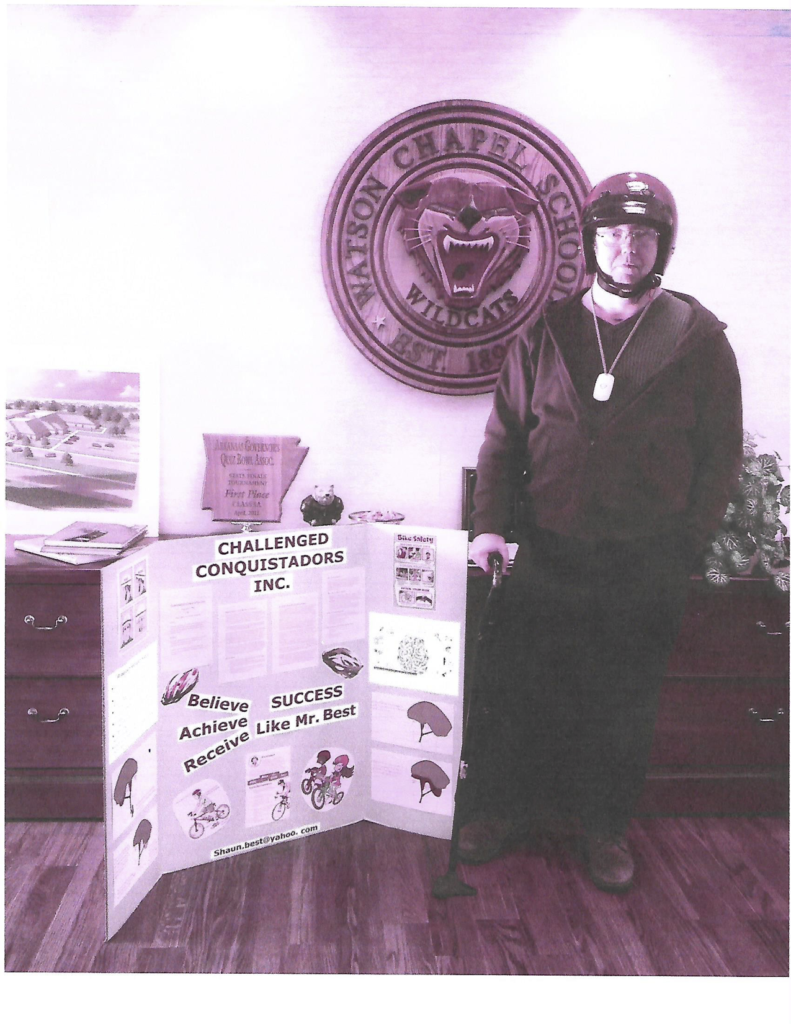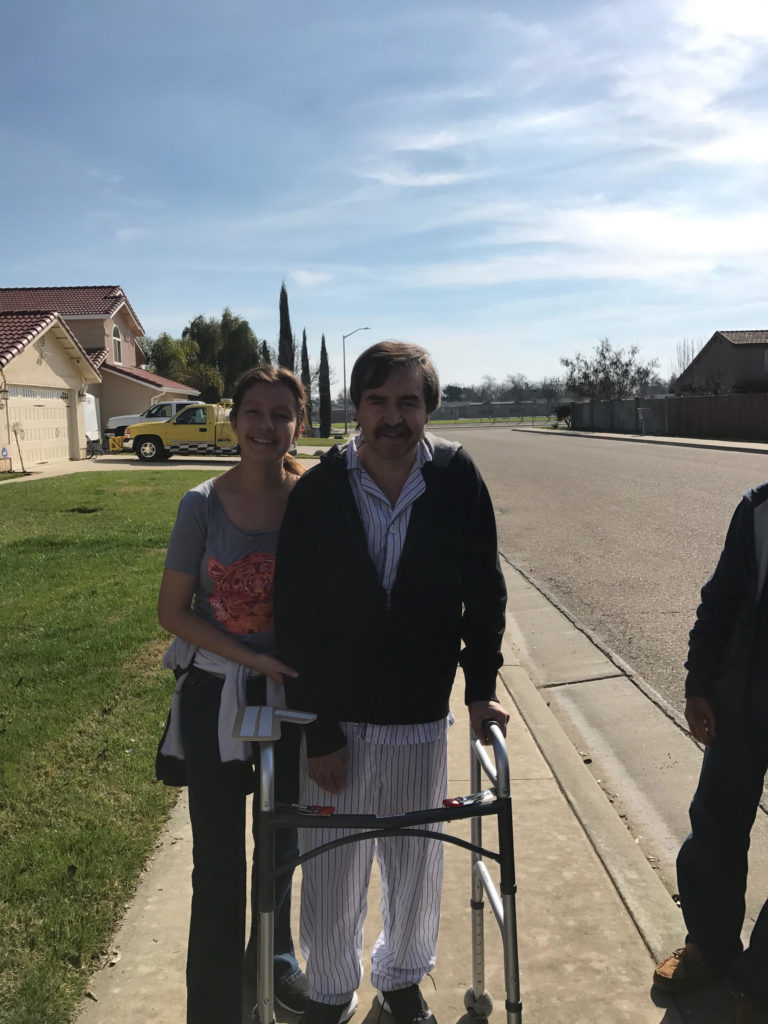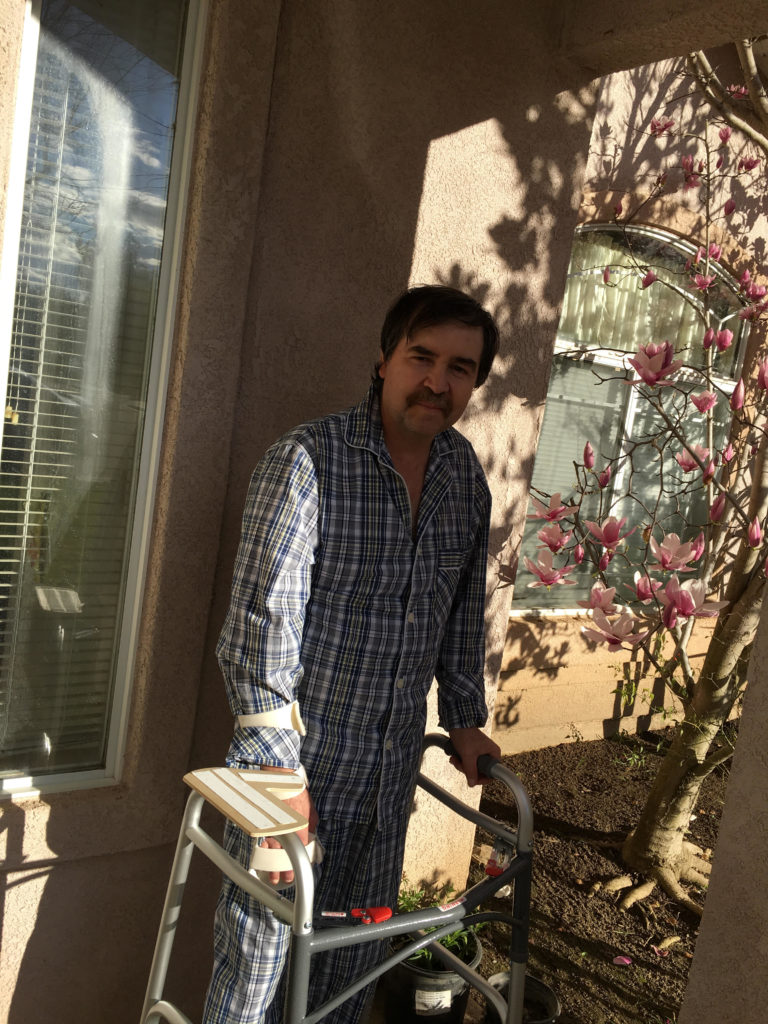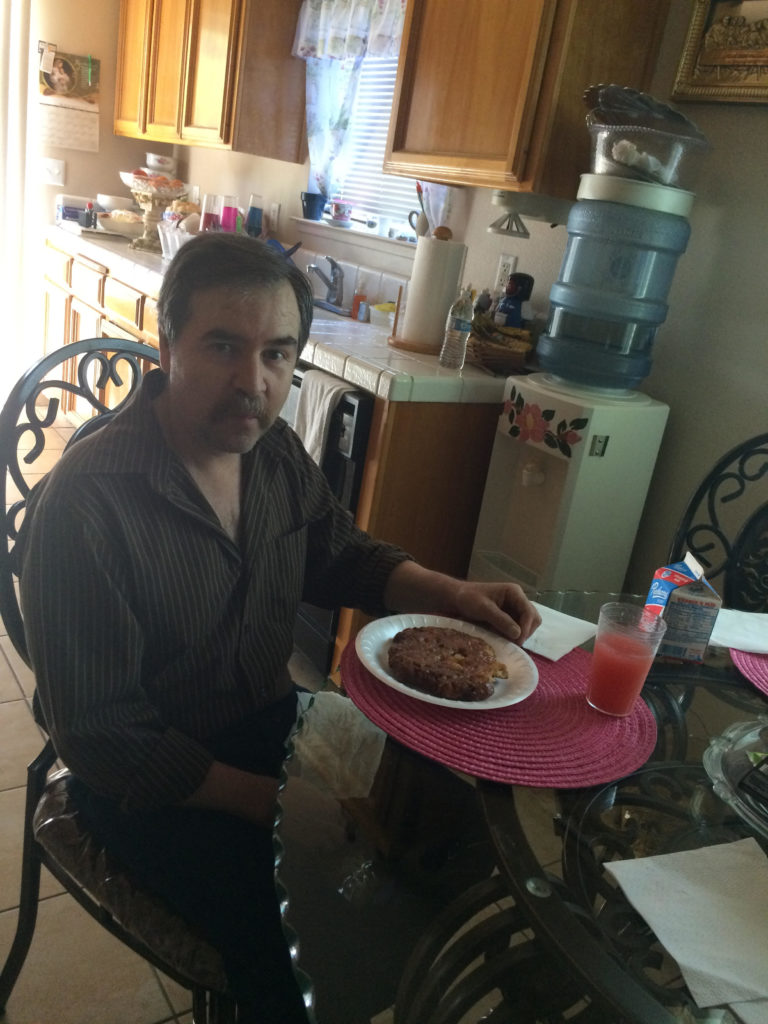Welcome to the Aphasia Threads Project, which weaves together three points-of-view: people with aphasia, caregivers, and the professionals who help each family navigate aphasia. Each week, we bring together three unrelated stories, one from each member of this triad, to learn from their experience. This week, we’ll hear from Shaun, a person with aphasia following a traumatic brain injury. Then, we’ll hear from Evangelina, who is a caregiver for her husband who has aphasia. Finally, we’ll hear from Alison, an SLP in New Mexico.

Person with Aphasia
I was hit by a truck on the side of the road in 1977, resulting in my 3-month coma at age 12 in Warren, Arkansas.

Aphasia Changes Your Life
Another challenge to be conquered as I walk my walk with honor! When told “Job has nothing on you, Shaun,” who can be allowed to dampen my days? Many feel we are worthless when cognitively challenged; will it continue, is the question?
But There Are Things That Help
My positivism started in 1978. I push each day such that others may know if they try, they too can fly to heights, never seen. I continue to journal My book, The Best Quest, is at Amazon.com, if you feel I can be of value to someone.
And Things You Learn Along the Way
Have a family, because they told me I could not. It is sad and lonely!
What Caregivers and Professionals Can Learn From Me
There are no limits, for any human, just those that we allow others to impose with discouragement through unfriendly/unkind terms.

Caregiver
My husband suffered a massive stroke on January 9, 2017, at the age of 50. He suffered right-side paralysis and lost speech, writing, and reading abilities.

Aphasia Changes Your Life
Aphasia changes your loved one forever. Communication becomes limited, so this impacts our daily lives in a very bad way. Lots of moments are full of frustration because there are no speech or writing abilities.
But There Are Things That Help
He goes to speech therapy twice a week for 30 minutes. It has helped him a lot. He can now say hello and goodbye in Spanish (native language). The sad part about this is that it is very difficult to find bilingual speech therapists.

And Things You Learn Along the Way
Don’t give up on your loved one, and get as much speech therapy as you can for them. Sometimes your loved one will not want to practice with their caregiver, but they will do it when they go to their speech therapist. Be as patient as you can, even if it seems unbearable at times. It is not their fault for what they are going through.
What People with Aphasia and Professionals Can Learn From Me
That it is very, very difficult for us, too. Our suffering is double because we see our loved ones go through this loss of speech and we also see our children suffer because they cannot communicate with their father or mother. Our marriage has changed, and we sometimes — without thinking — treat our husbands like another child instead of remembering that they are still our husbands. Family members also need some therapy to cope with all the changes after their loved one has been diagnosed with aphasia.
I just want everyone to know that aphasia changes your lives forever, whether it be because of a stroke or other illness. It is not an easy road for them or for the whole family, but with faith, love, patience and lots of laughter, we can make our loved ones with aphasia live a new normal life.


Professional
Alison works as an SLP in New Mexico..
I have worked in a variety of settings over the years including pediatric and adult settings. Over the years, the neurocognitive aspects of CVA, TBI, and other conditions have been the most challenging and yet the most rewarding aspects of my field.
What I’ve Noticed Along the Way
Joys are scattered throughout the recovery process and can be different for the patient or a family member. They can be small joys that are spontaneous utterances to great joys of major accomplishments when reflecting on how far they’ve come. The biggest frustrations are different from patient to patient. Some patients are accepting of letting go of independence, and I feel that for some, this is their biggest frustration.
There Are Things That Help
I think that the essential key is finding a tool, app, or method that the patient is able to continue on their own without the therapist there. The Constant Therapy app is the best I’ve found for the clinic to home connection. It not only measures accuracy progress but also latency or response time which is accurate for regaining the efficiency of a task which, when patient begin to achieve this, is when they begin to feel the progress.
And I Encourage New Professionals to Learn About Aphasia
Read, read, read. Read research, read patient stories, and read family perspectives. While every aphasia patient’s deficits fall into neat little decision-making trees, no two patient or families have the exact same struggles. Knowing your patient’s needs and knowing the research and evidence-based treatments are great starting places, but they are just that — starting places. Understanding from the patient’s perspective and caregiver’s perspective make you a better clinician.
What People with Aphasia and Caregivers Can Learn From Me
We get our joys in our professional day through your joys and accomplishments. When the patient and caregivers are working as a team with the “coach” (the SLP), the end game will be a success. A favorite statement I offer to new patients and caregivers is reminding them that this is going to be like training for a marathon. I will be your coach, but I cannot do the work alone. If you were going to train for your first marathon and hired a coach 2x a week, but you only trained for that marathon during those two sessions each week, you would never accomplish your goal and successfully complete the marathon without doing the work outside of the coaching sessions.
Never give up. Never accept that you are “too far past your event to make progress” and never accept that your “progress has plateaued.” Never.

Want to Be Featured in a Future Article?
Aphasia Threads is an on-going project created by the National Aphasia Association. If you’d like to be featured, don’t leave a comment. Instead, please read the opening post for more information or fill out our form and we’ll contact you.



